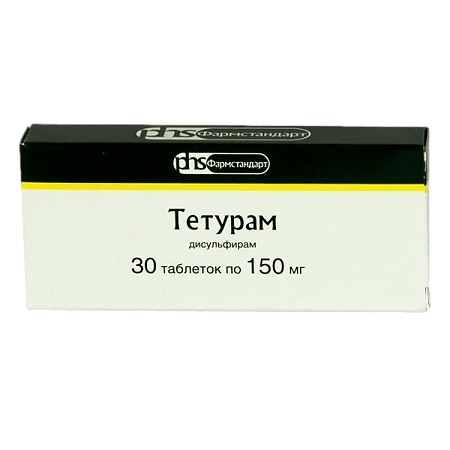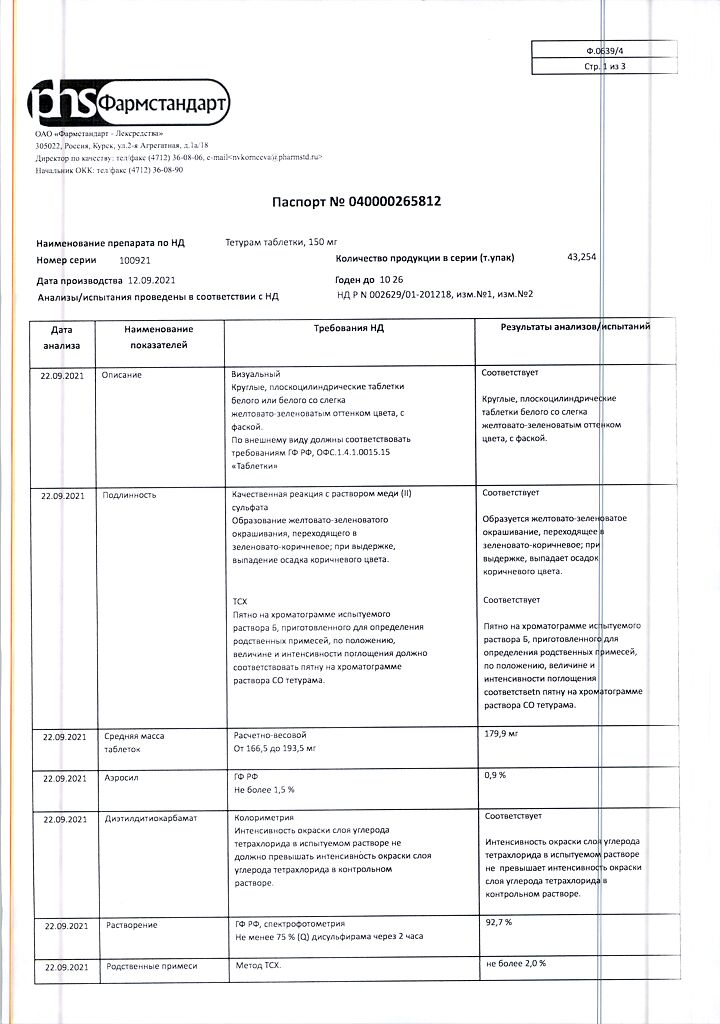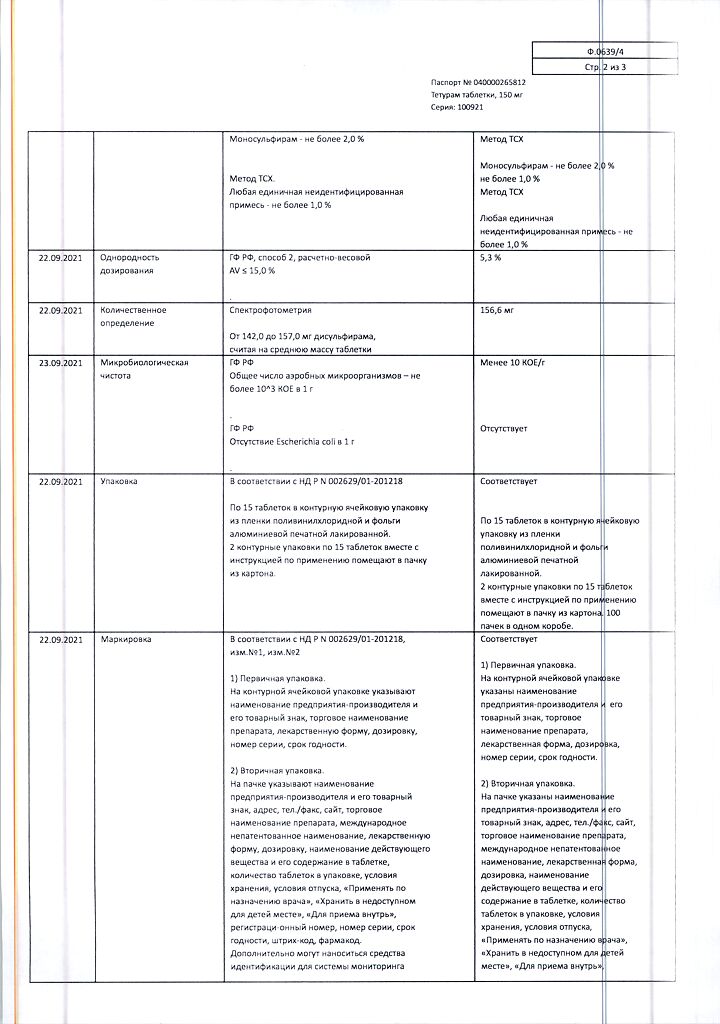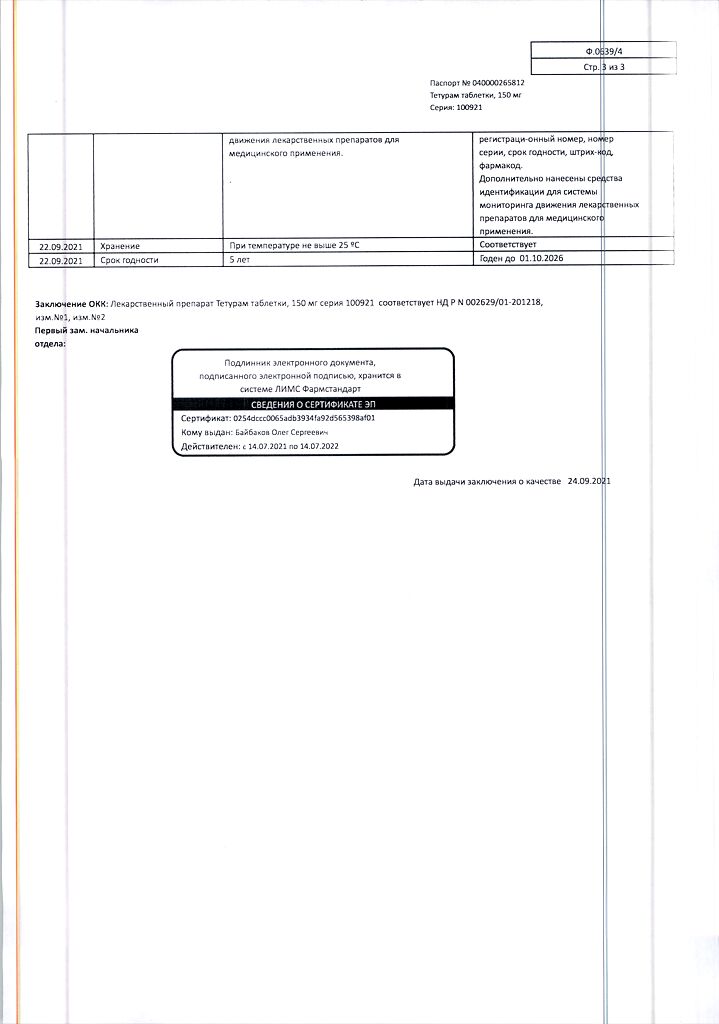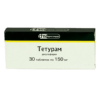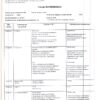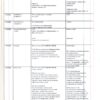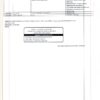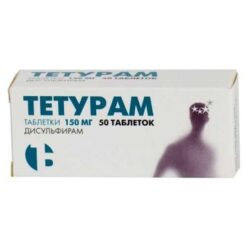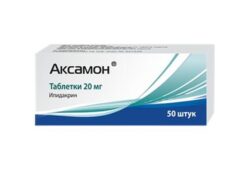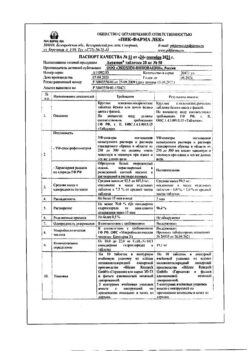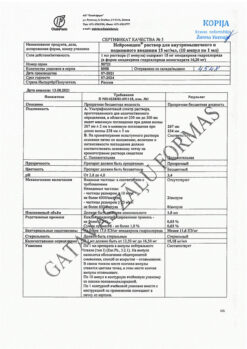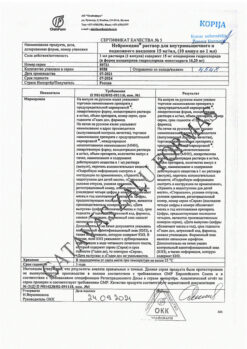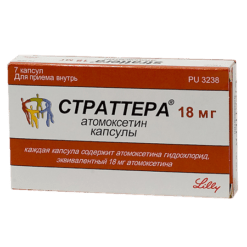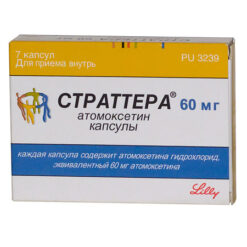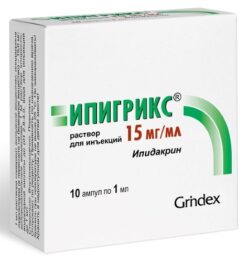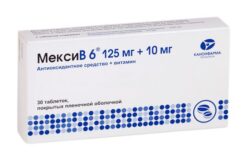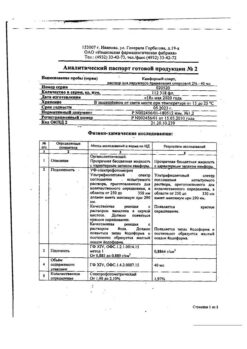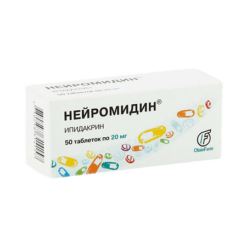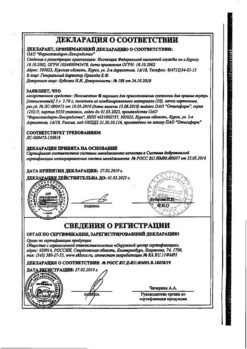No products in the cart.
Teturam, tablets 150 mg 30 pcs
€9.48 €8.00
EAN: 4601669005847
SKU: 35073
Categories: Medicine, Neurology and Psychiatry, Sedatives and hypnotics
Description
Teturam inhibits acetaldehyde dehydrogenase involved in ethanol metabolism; it increases the concentration of acetaldehyde which is a metabolite of ethanol and causes a number of unpleasant feelings after its use (“rushes” of blood to the skin, nausea, vomiting, malaise, tachycardia, BP lowering).
As a result, the development of conditioned reflex reaction of aversion to the taste and smell of ethanol takes place.
The duration of action of oral tablets is 48 hours. The use in the form of implants creates a constant concentration of the drug in the body. Disulfiram-ethanol” reactions may occur within 5-9 months after implantation.
In case of ethanol ingestion, lipid mobilization occurs, vasodilation and increased blood flow at the implantation site, resulting in an increased flow of disulfiram into the blood.
Indications
Indications
Treatment and prevention of relapse of chronic alcoholism; as a detoxifying agent for chronic nickel poisoning.
Pharmacological effect
Pharmacological effect
Teturam inhibits acetaldehyde dehydrogenase, which is involved in ethanol metabolism; increases the concentration of acetaldehyde, which is a metabolite of ethanol and causes a number of unpleasant sensations after its consumption (“flushes” of blood to the skin of the face, nausea, vomiting, feeling of malaise, tachycardia, decreased blood pressure).
As a result, a conditioned reflex reaction of disgust to the taste and smell of ethanol is developed.
The duration of action of oral tablets is 48 hours. Use in the form of implants creates a constant concentration of the drug in the body. Disulfiram-ethanol reactions can occur within 5-9 months after implantation.
When ethanol is taken, lipids are mobilized, blood vessels dilate and blood flow increases at the implantation site, resulting in an increase in the flow of disulfiram into the blood.
Special instructions
Special instructions
Patients should be warned about the danger of an intolerance reaction to alcoholic beverages.
Teturam should be taken with caution in patients with renal failure or hypothyroidism, especially if there is a risk of possible combination with alcohol.
Active ingredient
Active ingredient
Disulfiram
Composition
Composition
Active ingredient:
teturam 150 mg;
Excipients:
potato starch,
stearic acid,
aerosil.
Contraindications
Contraindications
Absolute:
Severe diseases of the cardiovascular system.
Organ of hearing (neuritis of the auditory nerve).
Organ of vision (glaucoma, optic neuritis).
Bronchial asthma.
Emphysema.
Pulmonary tuberculosis.
Severe liver failure.
Diseases of the hematopoietic organs.
Diabetes mellitus.
Thyrotoxicosis.
Epilepsy.
Convulsive syndrome of any origin.
Mental illnesses.
Exacerbation of peptic ulcer disease.
Kidney diseases.
Malignant tumors.
Polyneuritis of any etiology.
Pregnancy.
Increased individual sensitivity to the drug.
Relative:
Cardiovascular diseases in the compensation stage.
Old age (over 60 years old).
Peptic ulcer of the stomach and duodenum is in remission.
Residual effects after NMC.
Previously suffered teturamic (antabuse) psychoses.
Side Effects
Side Effects
During treatment with Teturam, a bitter taste in the mouth, headache, dizziness, memory loss, insomnia, and anxiety may appear.
The most common side effects of Teturam are allergic reactions – urticaria, skin rash, Quincke’s edema, bronchospasm, dermatitis.
When Teturam tablets are implanted, rejection may occur, manifesting itself in the form of collapse, arrhythmia, cerebral edema, suppuration, and heart attack.
Interaction
Interaction
Contraindicated combinations
Alcohol: intolerance reaction (flushes, erythema, vomiting, tachycardia). Avoid taking alcoholic beverages and medications containing alcohol.
Undesirable combinations
Isoniazid: behavioral and coordination disorders.
Nitro-5-imidazoles (metronidazole, ordinazole, secnidazole, tinidazole): delirium, confusion.
Phenytoin: a significant and rapid increase in plasma phenytoin levels with toxic symptoms (suppression of its metabolism).
If the combination cannot be avoided, clinical observation and monitoring of drug concentrations in entry plasma and after treatment with teturam should be carried out.
Combinations requiring caution
Warfarin (and other oral anticoagulants): increased effect of oral anticoagulants and risk of bleeding (reduced breakdown of warfarin in the liver). More frequent monitoring of warfarin concentrations and adjustment of the dose of anticoagulants is recommended for 8 days after discontinuation of teturam.
Theophylline: Teturam inhibits the metabolism of theophylline. As a result of this, the dose of theophylline should be adjusted (reduced dosage), depending on clinical symptoms and plasma concentrations of the drug.
Benzodiazepines: Teturam may potentiate the sedative effect of benzodiazepines by inhibiting their oxidative metabolism (especially chlordiazepoxide and diazepam). The dosage of benzodiazepine should be adjusted according to clinical manifestations.
Tricyclic antidepressants: an increase in the reaction of alcohol intolerance is possible (especially if patients take alcoholic beverages while taking Teturam).
Overdose
Overdose
Symptoms: the combination of teturam and ethanol can cause depression of consciousness up to coma, cardiovascular collapse, and neurological complications.
Treatment: symptomatic.
Storage conditions
Storage conditions
In a dry place, protected from light, at a temperature not exceeding 25 °C
Shelf life
Shelf life
5 years.
Manufacturer
Manufacturer
Pharmstandard-Leksredstva, Russia
Additional information
| Shelf life | 5 years. |
|---|---|
| Conditions of storage | In a dry, light-protected place at a temperature not exceeding 25 °C |
| Manufacturer | Pharmstandard-Leksredstva, Russia |
| Medication form | pills |
| Brand | Pharmstandard-Leksredstva |
Other forms…
Related products
Buy Teturam, tablets 150 mg 30 pcs with delivery to USA, UK, Europe and over 120 other countries.

